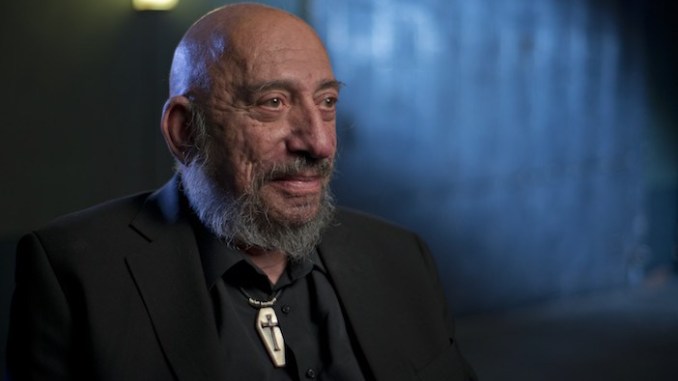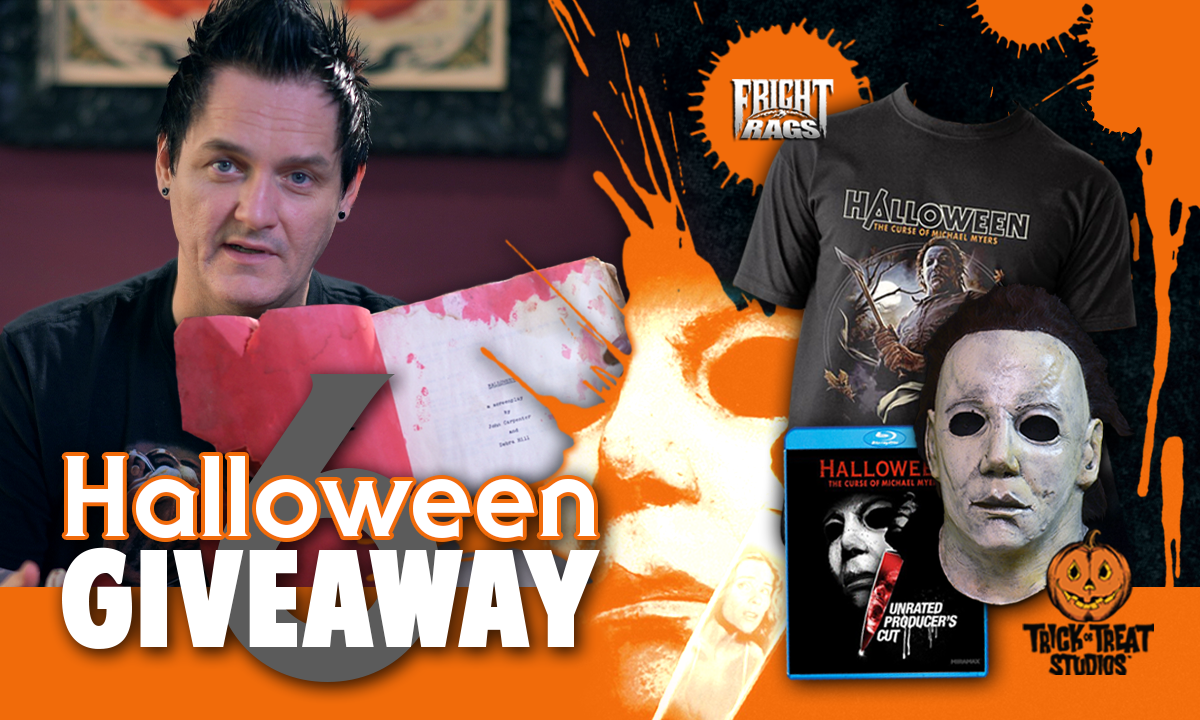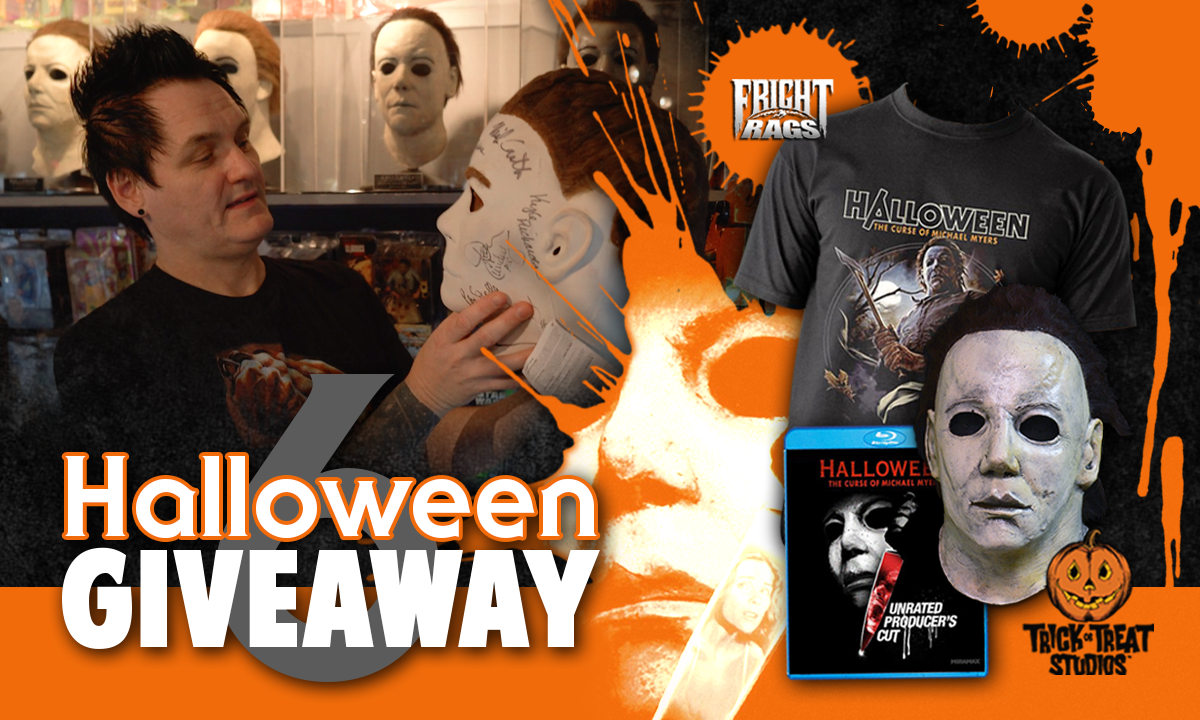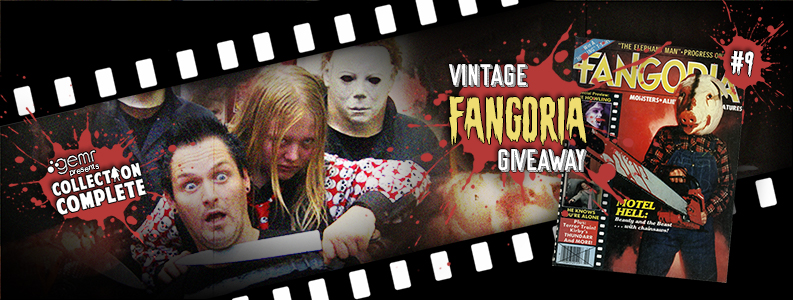The Halloween film franchise, over its forty-two years, has assisted in launching the careers of many, from Jamie Lee Curtis in John Carpenter’s 1978 classic Halloween to Paul Rudd in 1995’s Halloween: The Curse of Michael Myers (in his first feature film role), as well as Golden Globe-winner Michelle Williams and her co-star Josh Hartnett in 1998’s Halloween H20: Twenty Years Later. Similarly, the franchise also helped catapult the career of German-American actress turned producer and director Kristina Klebe, who recently sat down with HalloweenMovies in order to discuss her breakout role of “Lynda” in Rob Zombie’s 2007 reboot Halloween, as well as her far-ranging career which spans theater, voice-over work, directing, and surprisingly at one time, filming open heart surgeries, among other things.
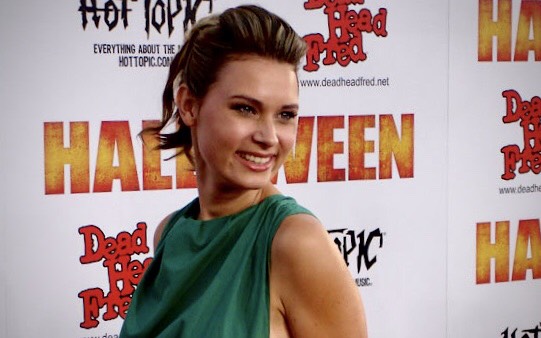
Kristina Klebe
Born in New York City, where she’d later hone her acting skills in off-Broadway plays ranging from characters such as “Juliet” in “Romeo & Juliet” as a member of the Jean Cocteau Repertory to working with Colman Domingo (“Fear of the Walking Dead”) on “The Big Funk” for New York Theater Workshop, Klebe showed an interest at a young age in the craft.
“I think the thing that inspired my inclinations towards acting was more than anything else being an only child,” offered the actress, who’s multinational upbringing found her spending significant time in Germany, France and Italy as both a child and later a teenager, including living in Paris as an exchange student in her senior year of high school, where she interned at the film distribution company M5.
“As a kid, I made up stories and imaginary characters all of the time in order to entertain myself. Also, because my parents spoke both German and English at home, I interestingly didn’t start speaking until I was two years old, and because of that I was in my own world I think, as I couldn’t prior to that find words to express myself, which led to me have a very vivid imagination. I think that helped me as an actor, because in my opinion, it’s all about imagining a situation, and putting yourself into it. Later in life I’d discover the Michael Checkov technique, which is exactly that: imagining yourself in the world of the narrative, both in theater and on film.”
Attending Catholic school as a young child, Klebe recalled of the time, in which in addition to her scholastic activities included public service (her choice was to read to the blind), “I liked to recite things, and I loved poems. I’d get a two-page poem on a Friday and memorize it in order to recite it in class the following Monday. I just loved poetry, and spoken word, most probably because I didn’t speak until I was two. Maybe I felt the need to catch up.”
Her introduction to the stage happened during this time frame as well.
“The school’s drama department would put on Christmas shows,” Klebe offered, “and we’d do ‘The Three Kings.’ They asked, ‘Who wants to play one of the kings, and which one do you want to play?’ And I raised my hand and said, ‘The one that has the most lines!’ I wanted to be the lead in the show, which is absurd now when I think about it, but I was a little kid, and I wanted to act.”
Her passion continued into college. Klebe graduated Dartmouth cum laude with a major in Politics and a minor in Film, and then attended the National Theater Institute at the Eugene O’Neill National Theater Center in Waterford, Connecticut (along with John Krasinski), all the while honing her craft off-Broadway, where she played the leads in such productions as “The Bourgeois Gentleman,” “On the Verge” and “A Servant of Two Masters,” among others.
“I was always doing theater,” Klebe recalled. “That was my number one love, and still is. My dream was always to be on Broadway, and that’s why at one point in my career I decided to go to Hollywood, for it to assist in that dream. That was my ultimate goal: to get back up on the stage in New York.”
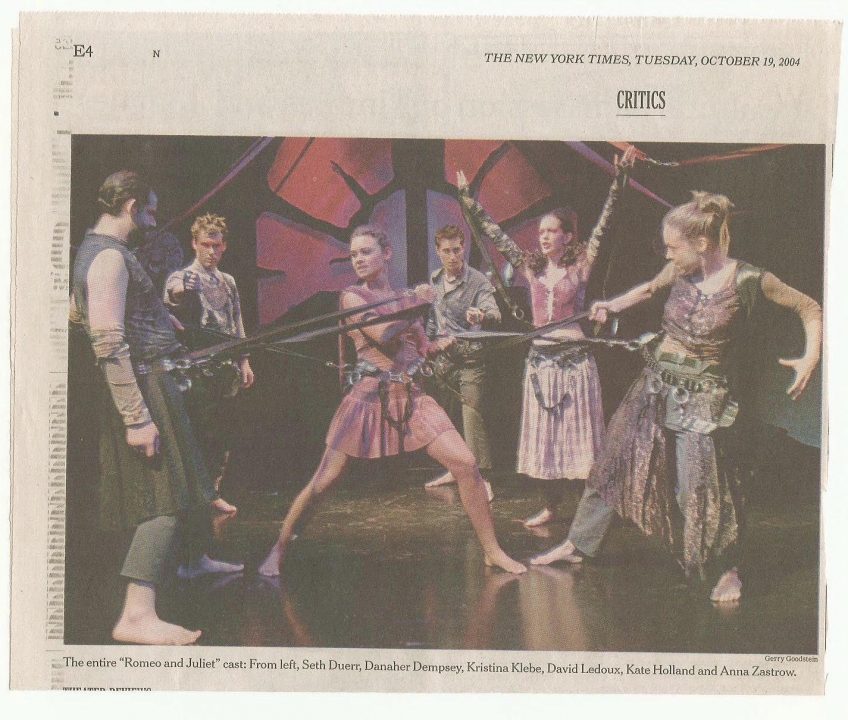
Kristina Klebe on the New York Stage as “Juliet” in “Romeo & Juliet” (2004)
It wasn’t long before Hollywood came calling, by way of the Halloween franchise. Having auditioned for the film while on a trip to Los Angeles, Klebe made the decision to move to the west coast shortly thereafter, and after only having lived in Los Angeles for a week, she got the call. She’d got the part of “Lynda” in Rob Zombie’s remake.
“It was a weird thing,” said Klebe of the casting. “I mean, how lucky! That doesn’t happen very often, you know. And then at the same time, I was offered an incredible theater role as ‘Charlotte Corday’ in Marat/Sade at the Classical Theater of Harlem. What a month! What a year. I ended up giving up the play in New York to be in Halloween. It was a great theater role, and it was hard to say ‘no’ to it, but how could I not? It was a crossroads for me, leaving theater and going into film, and having the opportunity to be in such a big film was just incredible.”
As for her familiarity with the source material, Klebe confessed that at the time she’d never seen Carpenter’s classic, and that the horror genre itself had previously frightened her.
“I remember I was traumatized at an early age by horror movies like A Nightmare on Elm Street,” she said recalling a sleepover at a friend’s house at an early age, where she first saw the 1984 Wes Craven classic. “I came home crying the next day, and said to my mom, ‘Don’t ever let me watch anything like that ever again!’ So, growing up, I didn’t really watch horror films. I was scared of them. So, I hadn’t seen Halloween when I got the part. Prior to production, I started to watch it, but then stopped, because I didn’t want to be influenced by (Halloween 1978’s) PJ Soles performance. But of course I watched the original after we finished filming, and it’s a masterful film.”
Regarding her casting, and her preparation for the role of the foul-mouthed yet endearing character, “When I received word that I’d received the part, they also told my manager that they were testing for the role of ‘Laurie,’ which went to Scout Taylor-Compton (writer’s note: Academy-award winning actress Emma Stone had also auditioned) and wanted to do a chemistry read with Danielle Harris, Scout and myself. I had never done anything like that before.”
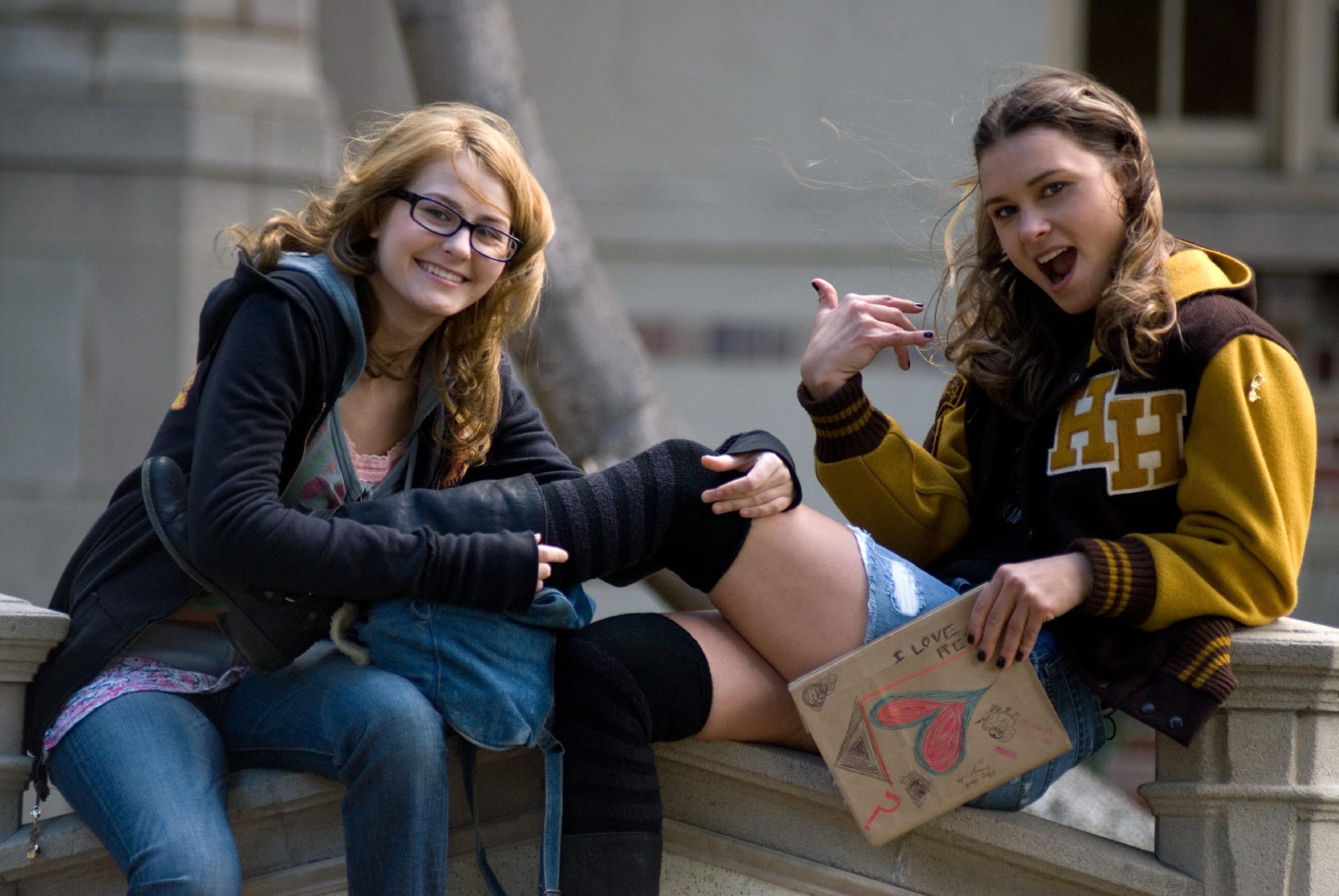
(left-to-right) Scout Taylor-Compton & Kristina Klebe on the set of Halloween
“We went to the Sony lot, I believe it was,” Klebe continued, “and as I was meeting Rob for the first time, I was super nervous. Not because Rob was a rockstar – thankfully I wasn’t too familiar with his music. If I had been, I would have probably been even more nervous, but because I was just praying that I survived that test, and that I did a good job, because you know, they can always fire you. I think it’s moments like that, when you are under so much pressure, that you can really shine, and show people that you can handle it. It’s so important as an actor, but we are not always taught that.”
Regarding Klebe’s working relationship with Halloween veteran Danielle Harris (who’d previously inhabited the role of “Jamie Lloyd” in both 1988’s Halloween 4: The Return of the Michael Myers and 1989’s Halloween 5: The Revenge of Michael Myers, and who in Rob Zombie’s Halloween took on the role of “Annie Brackett”) and her understanding of her place in the genre, she said, “I didn’t really know at the time. I was so new to the world of horror and of Hollywood, that my thoughts were really preoccupied with the mantra of, ‘Do a good job, Kristina. Do a good job.’ I do remember though that I couldn’t believe that I’d have a scene with (actor) Brad Dourif. I was star struck by him, as I was a huge fan of his work in One Flew Over the Cuckoo’s Nest. So that was really cool. Plus, Brad loves and writes poetry, as I do! And we talked about poetry the entire time on set!”
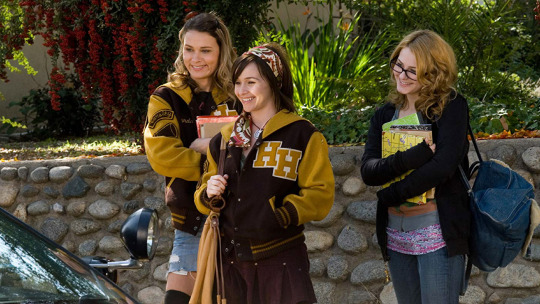
(left-to-right) Kristina Klebe, Danielle Harris & Scout Taylor-Compton in Rob Zombie’s Halloween
As for working with director Zombie, “Rob was always so great and easy to work with,” she recalled. “He was very direct, and he was great at giving directions, was full of praise for his cast, and sometimes encouraged improvisation. There’s a scene in the director’s cut of Halloween, where the girls are walking and I’m talking about conjugating some French with a French teacher, which I had made up, and Rob said, ‘Hey, you speak a couple of languages, right? Do something like that.’ I was like, ‘Oh my god, OK!’ Rob can pick out your strengths and he knows how to play to them.”

(left-to-right) Behind-the-scenes of Halloween with Kristina Klebe, Rob Zombie & Scout Taylor-Compton
Announced on June 4, 2006, the Halloween remake, with writer, director, producer and music supervisor Zombie at the helm, sent shock waves through the Halloween fan-base, and proved instantly polarizing. And while he received Carpenter’s blessing to “make it his own,” the news of a remake of one of cinema’s most beloved horror films nevertheless set horror fans abuzz, both for the Zombie re-imagining (given his previous gore-soaked films House of 1000 Corpses and The Devil’s Rejects), and against.
Was Klebe aware of any perceived pressure surrounding the film?
“I don’t remember that being a concern, honestly,” she offered. “I really don’t remember it being an issue at all, but it could have been a situation of, as I wasn’t aware, I wasn’t looking for it? But I don’t remember it being a topic of conversation. Rob might have been aware, but Rob’s so confident that he probably wouldn’t have given a shit. He was probably like, ‘Yeah, whatever. I’m going to do my thing.’”
It being a Zombie film, the levels of violence, and of nudity, would be upped from Carpenter’s suspense-driven original, and this applied to the scripted role of Lynda as well, which called for the character to suffer (by mid-2000s wide release standards) a rather gratuitous post-coital demise.
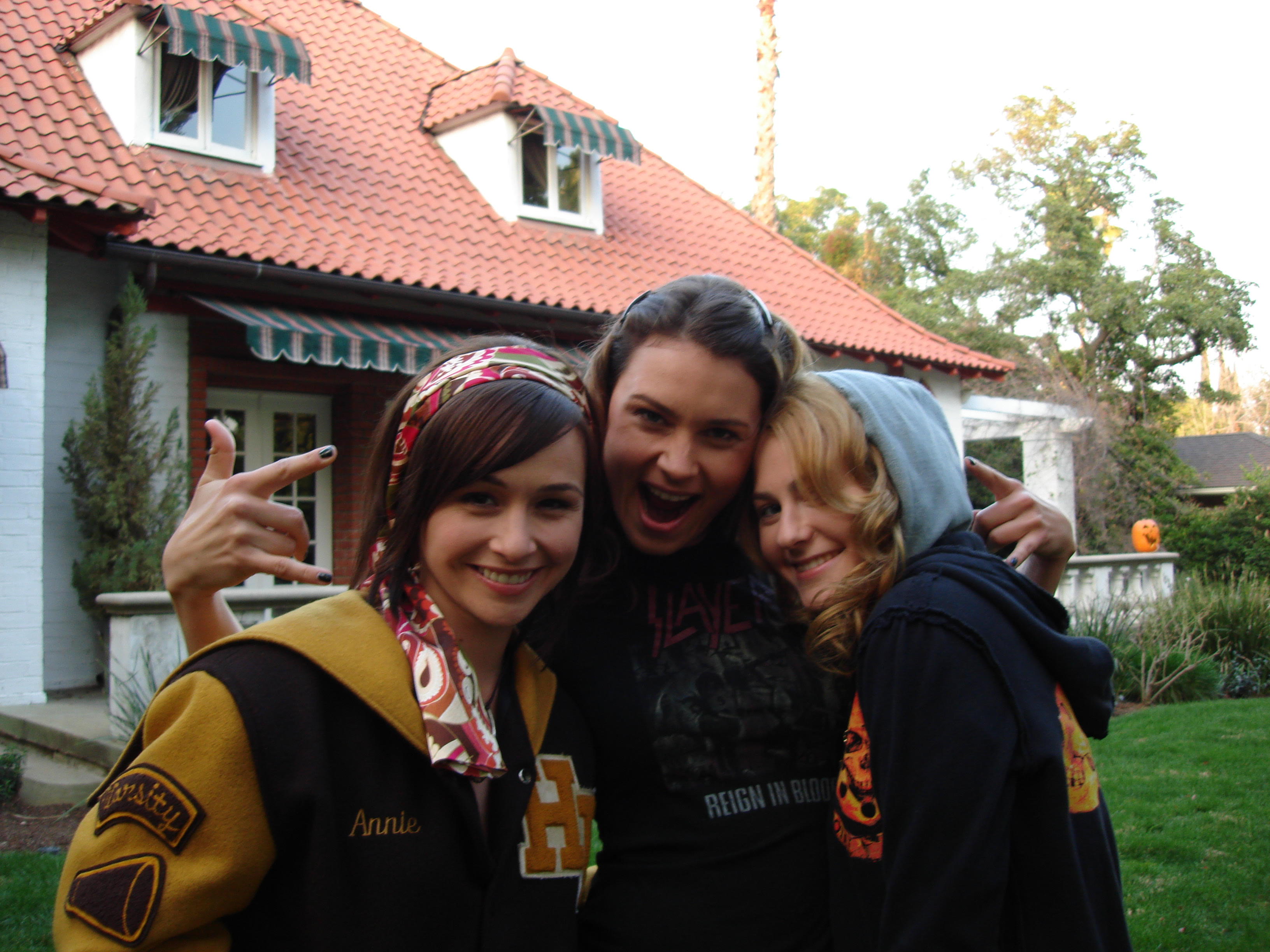
(left-to-right) Behind-the-scenes of Halloween with Danielle Harris, Kristina Klebe & Scout Taylor-Compton
“At the time, would I have preferred not to have done the nudity?” offered Klebe. “Of course. But it was a pre-requisite, and it was a big movie, and it was my first big role in a big movie. So, there really wasn’t any room for debate. I think it’s not that I have an issue with being naked in a movie. There are many European films that have beautiful and tasteful nudity – like Blue is the Warmest Color. The problem is that I don’t like being naked on the internet. The fact that people take stills from a film and feature them on prurient websites, skin sites, is bothersome. It’s not really a nice photo when it’s a screen grab taken from a film, because it’s from a moving image which is meant to be moving. If I was going to pose nude for photo, then I’d do it properly for Playboy or something, which I was actually asked to do in Germany but turned down.”
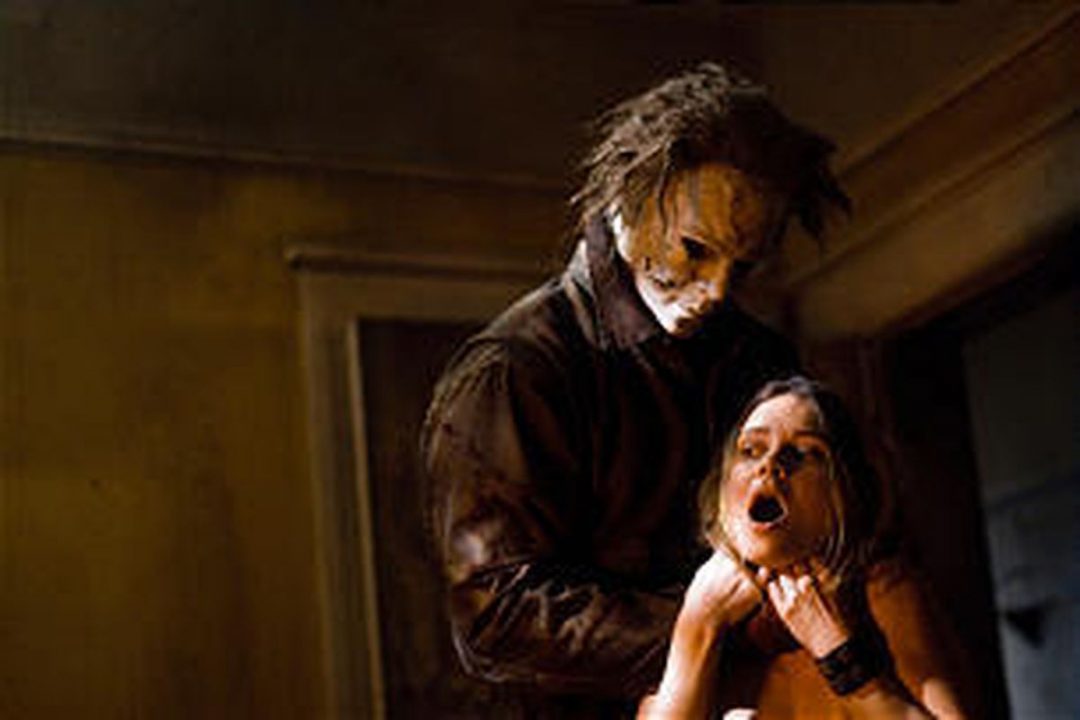
(left-to-right) Tyler Mane as “Michael Myers” & Kristina Klebe in Rob Zombie’s Halloween
“Today though, I certainly know that stills ending up on some of these sites is a possibility,” she continued. “I haven’t done any nudity since, except for Proxy, (in reference to the 2013 Zack Parker-directed indie) in which I did a topless scene, as well as a scene of me masturbating. But I was not taking off my underwear. I don’t care if that’s not what a normal person would do, but I didn’t do it because I knew it would be all over the internet. That’s the only other movie I did a topless scene in, and it was right for the character, and would have been weird had I not done it. But I’m very concerned about these things being on the internet. I think it ruins it for an artist, and for the directors who want to take care of their actors.”
As for her character’s death, which required Klebe to be mock-strangled and subsequently carried off by towering actor and stuntman Tyler Mane, “That was the part that was the most difficult,” Klebe offered. “I felt so embarrassed, and he probably felt that way too, but Tyler was still so gentle and careful, and I could not have asked for a more respectful man to have done that scene with. Even if he was playing Michael Myers.”
Zombie also proved to be caring.
“While filming Halloween, I was also shooting the (2008) romantic comedy ‘The Accidental Husband’ in New York,” recalled Klebe, “and they needed a pick up shot, so I had to fly back to the east coast to do it, and then get right back on a red eye flight in order to return to the Halloween set in LA, in order to shoot the scene in the library where the girls are talking. I guess I was a little tired and I had a blemish on my chin or something, and someone on the crew, and I won’t say who, mentioned it in front of people. Like, ‘Oh, Kristina, you have something on your chin, and you should cover that up.’ People could have said anything, and I wouldn’t have cared. I was just so tired and was only focused on the scene, but I guess Rob became so angry with that person over their comment that he yelled at them, and later came to my trailer to apologize personally for that person’s statement. It was such a weird moment, and I thought, ‘Wow, I can’t believe that Rob even noticed that, and that he went out of his way to apologize.’ It was meaningful. He really cares for his actors.”
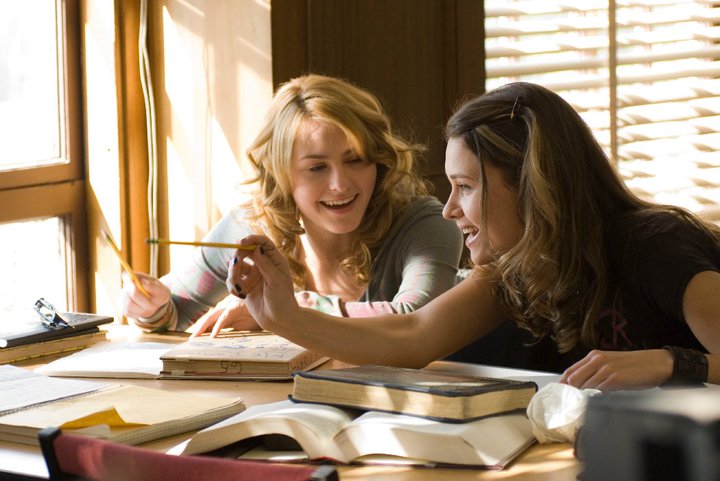
(left-to-right) Scout Taylor-Compton & Kristina Klebe in Rob Zombie’s Halloween
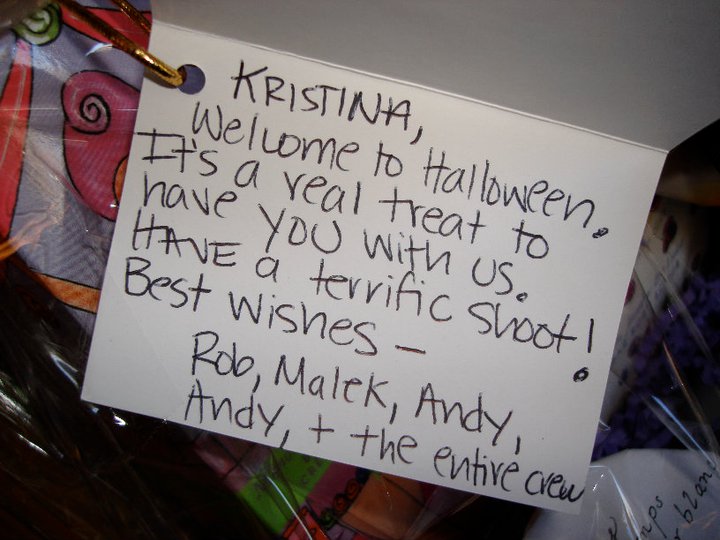
Welcome note provided to Kristina Klebe on her first day of Rob Zombie’s Halloween
With the film wrapped, Rob Zombie’s Halloween would debut on August 31, 2007, receiving the widest release of any previous installment in the franchise, as well as a gala Hollywood premiere at Mann’s Chinese Theater in Hollywood, CA, six days prior. Klebe recalled of the event, “I took my dad with me as my plus one, which was always on his bucket list. He had grown up in post WWII Germany, and the country at the time was very poor. There was little food, and very little of anything, really, and he would ride his bike to school ten miles every day, and would pass posters advertising American movies. As a kid he thought it would be a dream to go to a Hollywood film premiere, so being able to take him to one, and a movie that his daughter was in, was very meaningful to us both.”
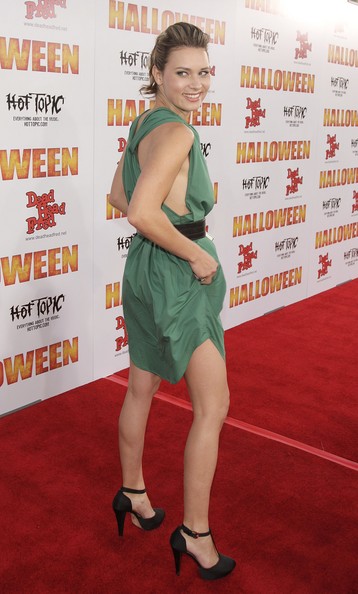
Kristina Klebe attends the premiere of Rob Zombie’s Halloween
“I remember that I was obviously a little nervous since I had a nude scene in it,” she continued, “but my parents are European, so it’s not such a big deal for them.”
As for her response to Zombie’s “nurture over nature” approach to the pathos of Michael Myers and her reaction to the film upon seeing it, “I felt like I understood the little Michael,” Klebe said. “I liked the fact that there was a backstory. I know that’s a bit controversial, because many people don’t want an explanation for Michael Myers, but I liked the realism of it, and I remember liking the movie when I went to see it on that first day.”
With Rob Zombie’s Halloween a box-office success, grossing $80 million worldwide, Klebe found a footing in the genre space, and as the years went by she’s appeared in several horror films, including a hilarious turn as “Eva Braun” in director Adam Green’s parody “The Diary of Anne Frankenstein” installment of the 2011 anthology Chillerama. More would follow, with lead roles in 2014’s Montenegro-shot Killer Mermaid and Mike Testin’s 2015 feature Dementia, as well as a supporting role in Neil Marshall’s 2019 feature Hellboy.
Additional appearances include those in SAW director Darren Lynn Bousman’s 2016 cult-fave Alleluia! The Devil’s Carnival (as “Geraldine,” in which she steals the show with an infectious song and dance number) and Mike Mendez’s 2016 feature Don’t Kill It, as “Agent Evelyn Pierce,” all running concurrently with both television and theater work.
Was she concerned at being typecast as a “Scream Queen?
“I didn’t even know the term at the time of Halloween,” reflected Klebe. “On a career level, I think it’s been a double-edged sword. I didn’t realize that being in one horror film would then put me into a niche as a ‘horror movie actor.’ I can remember growing up that people would say, ‘Don’t’ ever be in a soap opera, because then you’ll forever be a soap star.’ But I would have probably accepted a lead in a soap regardless, because I love acting and I want to have every opportunity to act, because I love it so much. I didn’t really realize at the time though that being in a horror film was similar in the way that it’s impacted my career. On the flip side, it’s provided me with so many opportunities for work, for which I’m so incredibly grateful. Eventually though, as I found that many of them were only within the genre, I made a conscious decision to change my path and to branch out. I didn’t want to be perceived as someone who could only do horror, but as someone who could anything: television, drama, thrillers, action films, comedies and voiceover work.”
One of those opportunities arose while making an appearance at a horror convention and speaking to Friday the 13th veteran and Chillerama co-star Kane Hodder: an appearance in Gun Media’s Friday the 13th: The Game.
“Yes!” exclaimed Klebe. “How funny! I have always loved doing voiceover. When I was growing up doing theater, I was a singer, and loved musicals, and loved the musicality of changing your voice and pitch and accent, which certainly applies to voiceover work. That’s always fascinated me, and it was something else I wanted to do. But anytime I would try to get into that world, it proved daunting. It’s really an insular space, and they seem to often only hire people they know. So, Kane and I were talking about this, and he said, ‘Well, we are casting for this Friday the 13th game,’ and I literally begged for an audition. I auditioned for many roles in the game, and they gave me the role of ‘The Girl Next Door,’ which they then changed to Jenny ‘Myers’ as a nod to Halloween. I don’t think anyone knew that the game was going to be as popular as it became, and I’m so happy about that, because I love all of the people involved.”
Artistically industrious, in 2011, Klebe, whose historically divided her time bi-coastally, decided to in addition to her already prolific creative endeavors to also pursue a career behind the camera as a director, and dove into studies at NYU’s Grad Film Program at Tisch School of Arts in New York City.
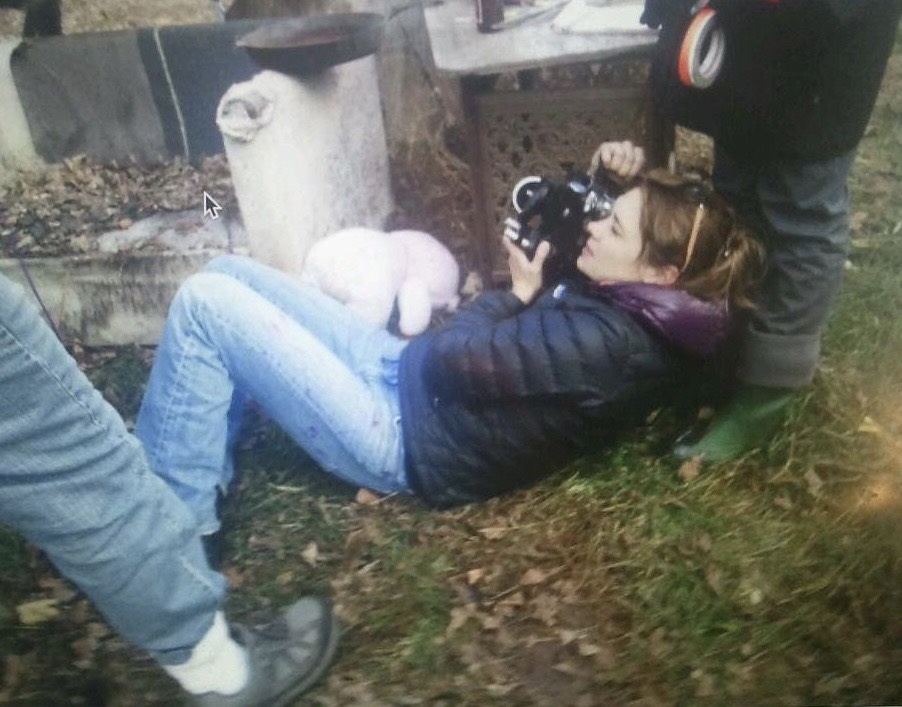
Kristina Klebe directing on the set of her short film As Human As Human
“So, this was an interesting. When I was growing up, I got along with all of the girls, but I always felt like I was one of the guys,” Klebe mused. “I was into sports, and kind of a tomboy, and I always felt like I didn’t feel any separation between men and women. I obviously knew that some guys were attracted or there was attraction, but I was always able to maintain friendships. And in the acting world, I felt more competition between women than between women and men.”
“Only when I went to NYU did I experience first-hand the real gender divide. I was like, ‘Wait a second, hold on. Why are all of these guys that I went to school with getting meetings and agents, and they have less experience than I do in the film business?’ For the first time, I felt a real wave of anger come over me about how unfair things were. For me, the doors were closed. I was being told ‘Oh, in order to direct a feature you first have to have written a feature script,’ something which men at the time seemed to not be hearing. Believe it or not, I couldn’t handle that much rejection, which is ironic, as an actor.”
“So, for a minute I just kind of gave up, even though by that point I’d already directed a couple of shorts, one of which (As Human As Human) ended up being award-winning film, which played in competition at the Sitges Film Festival.” (Writer’s note: Klebe’s most recent short film, Daddy’s Little Girl, was supposed to premiere in competition at the Oscar-qualifying Cleveland International Film Festival in April, but the festival was canceled due to Covid-19.)
Undaunted, she wrote her first feature script, Gene Therapy.
“I think since then things are getting better,” she said, “because people are now much more aware of that ‘boys club’ mentality, which is great. I hope that more women are hired as directors until we are at an equal 50/50, and I still aim to direct the feature from the script that I wrote. It’s a dark, fantastical comedy, and something that I feel is a meaningful story. A script that has something to say.”
As such is life, Klebe’s philanthropic side, something which commenced in Catholic school by her readings to the blind, itself evolved along with her creativity, and eventually the two made a confluence years later in documentary form while attending NYU. Via Doctors Without Borders, Klebe filmed open heart surgeries in Haiti and Nicaragua, a task which may seem surprising for a woman who was terrified by Freddy Krueger as a child.
“It was part of an exercise called a character study,” she offered of how she became involved, “and mine was about this well-known New York heart surgeon who performed open-heart surgeries. I followed him one day, documenting his work from the start of his shift until the end, and afterward, he asked me if I would film him and his trip to Haiti for Doctors Without Borders and Open Hearts Haiti. So, I did, and filmed him performing heart surgeries on these poor Haitian children who have no money and little opportunity. The surgeries were free. It was one of the most meaningful trips I’ve ever taken in my life, and changed my perspective. Our lives are so privileged, and the trip made it quite clear to me that so many of the problems which we think we have are absolutely miniscule in comparison to what these kids and their families are going through. And I loved doing my part to help by being there to document it.”
Reflecting on our current pandemic and self-isolation, Klebe finished, “My biggest sadness is that I feel as if I can’t do anything for people right now. I would love to bring food to people who need it, or help in some way however small, but due to social distancing and out of concern for my family’s health, I can’t take the chance of bringing anything back to them. But I’ve been yearning to help, and I look forward to the day when I can return to that.”
Klebe’s latest feature I Am Fear, in which stars and produced, was released on March 3, 2020. For more, you can follow her on Instagram at @kristinaklebe and on Twitter at @kristinaklebe, and catch her on the television series “American Dad” on June 1.
–
Writer’s note: this interview has been lightly edited and condensed for clarity.
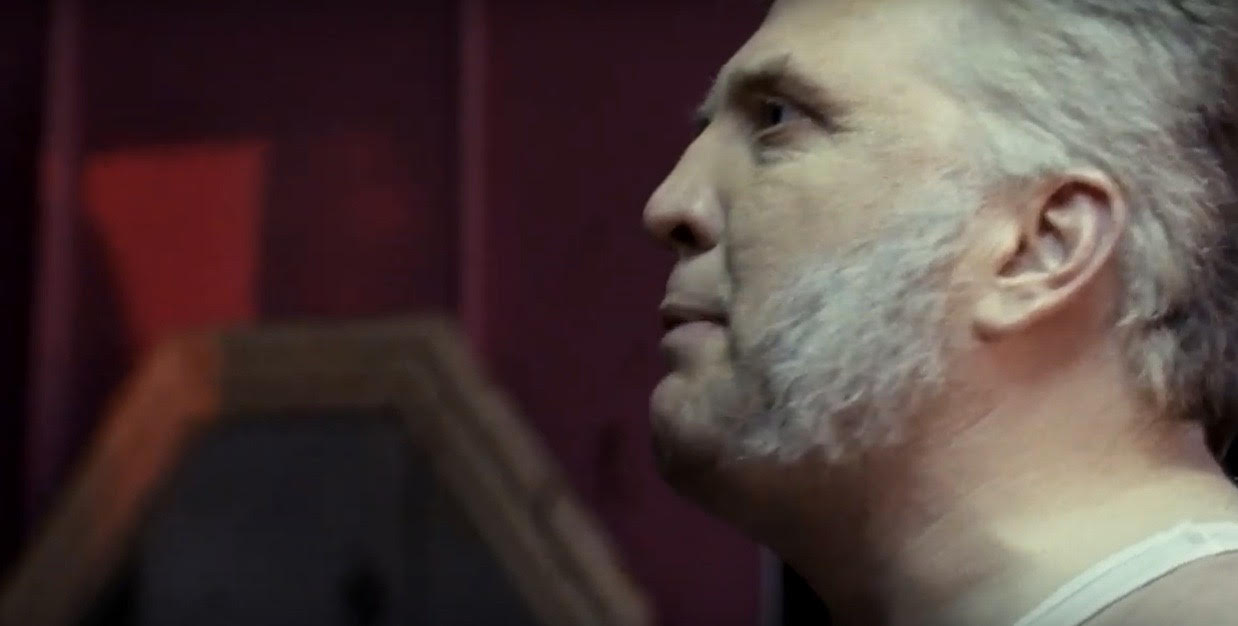
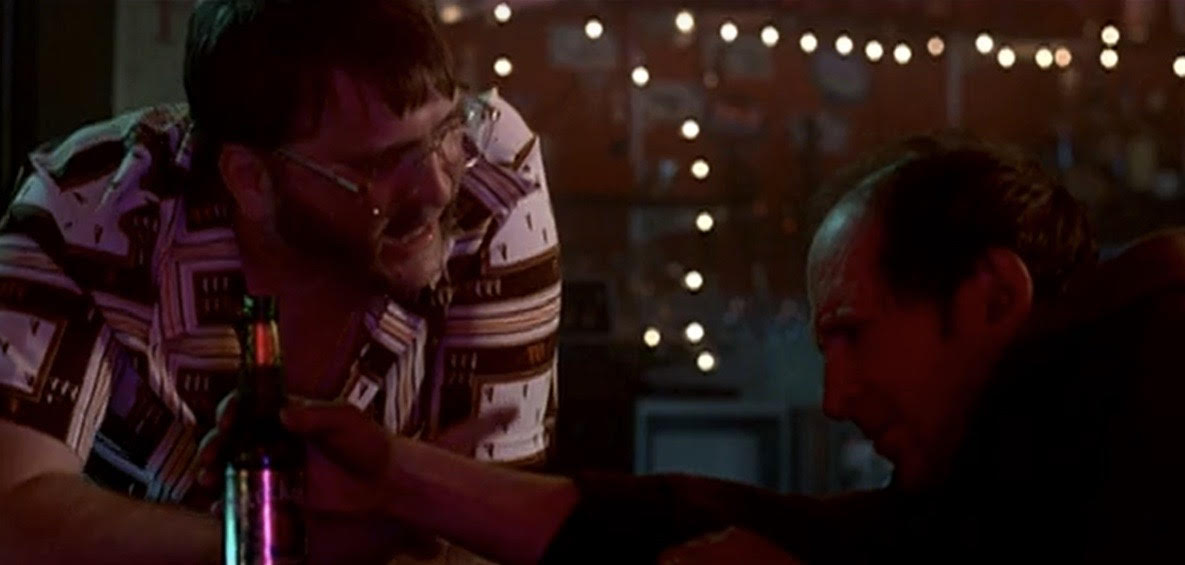
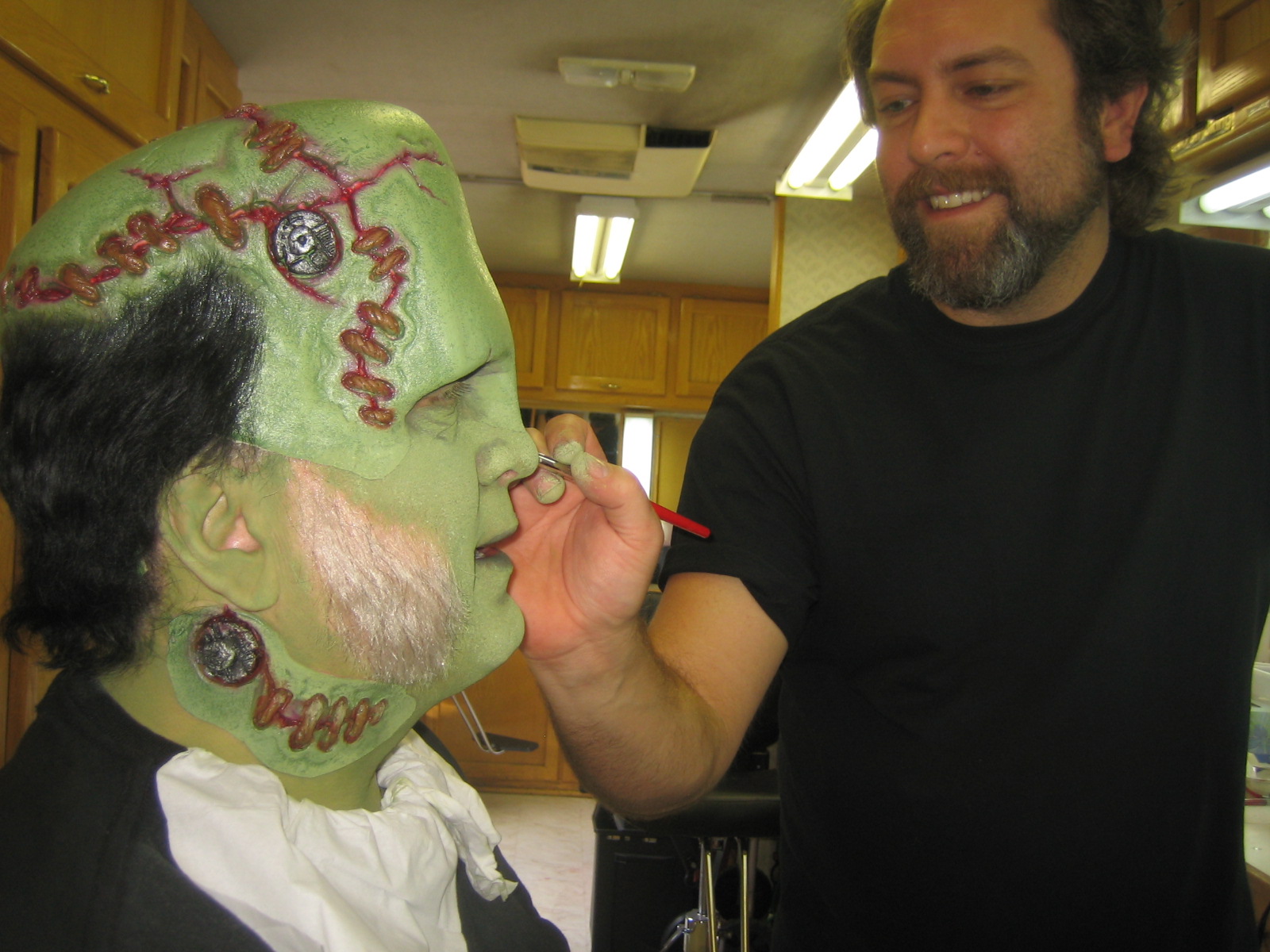
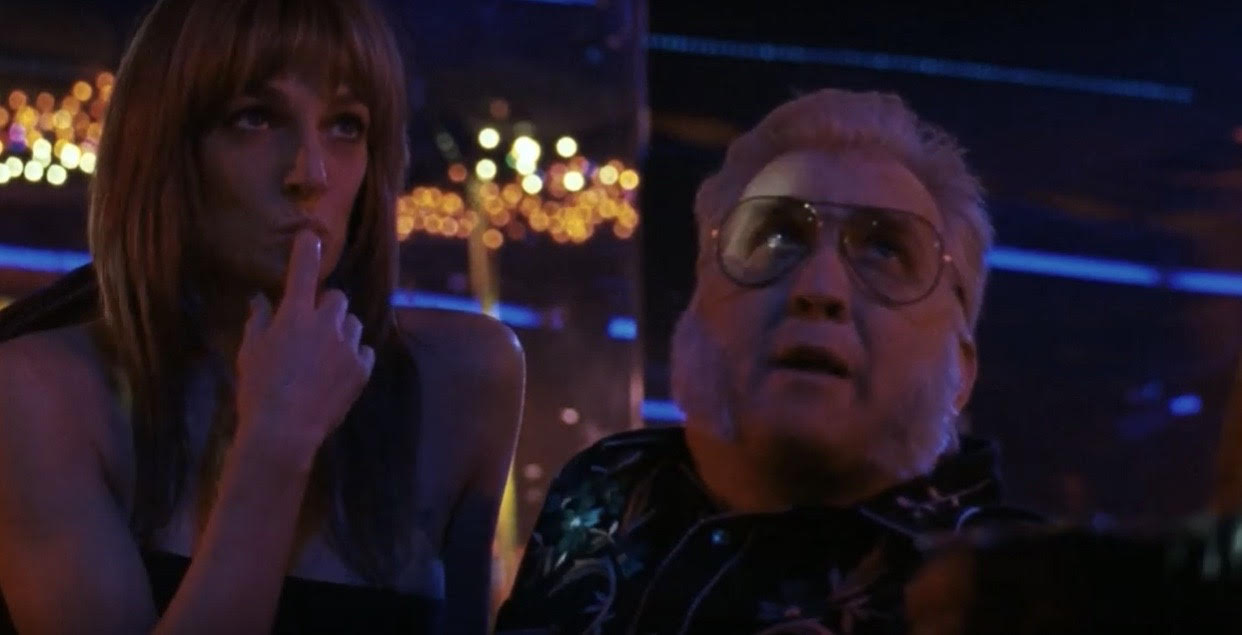
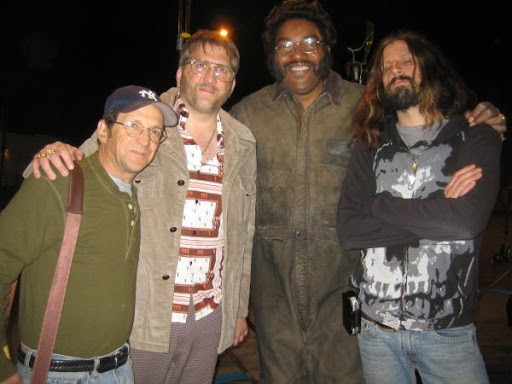
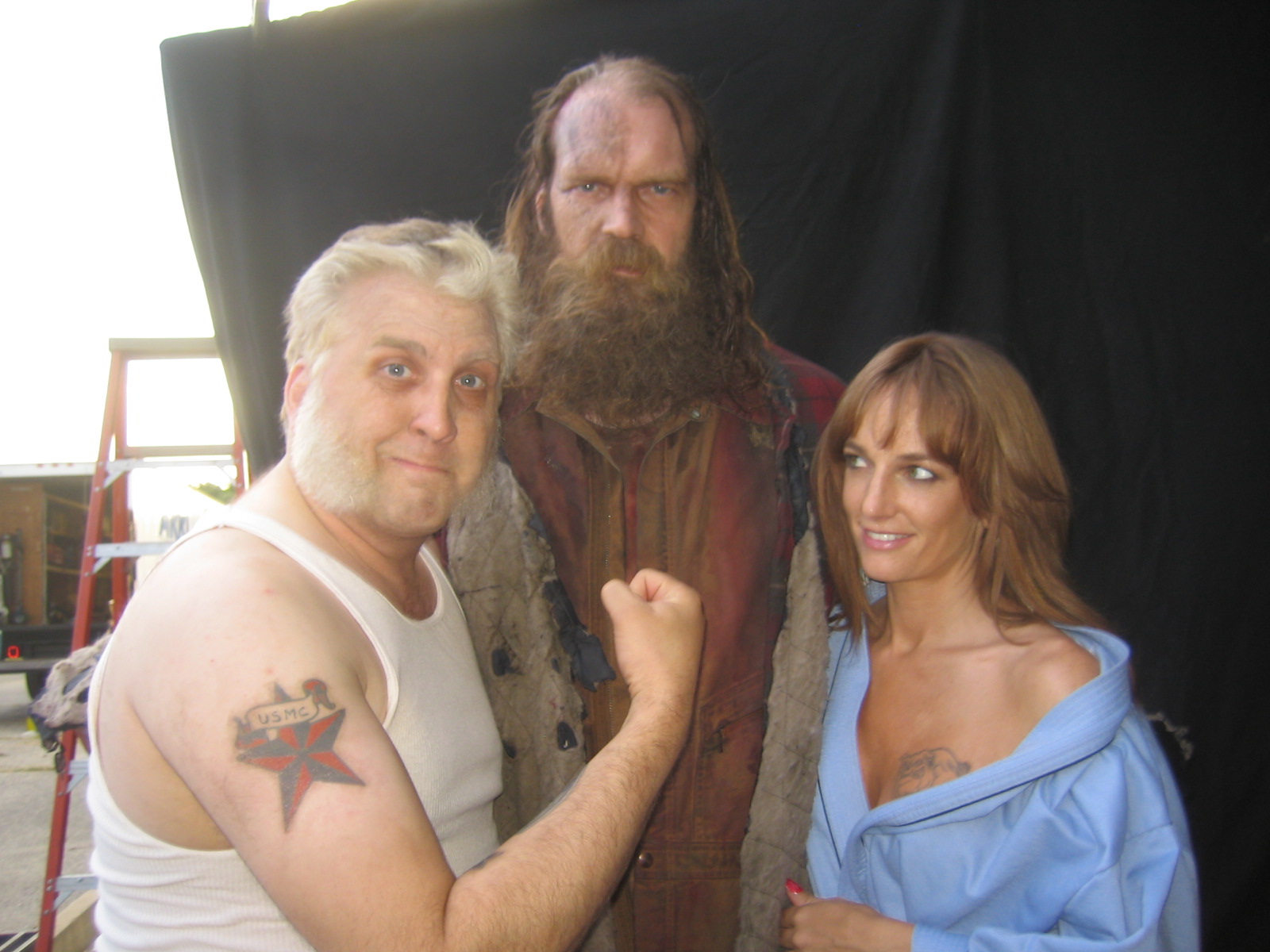
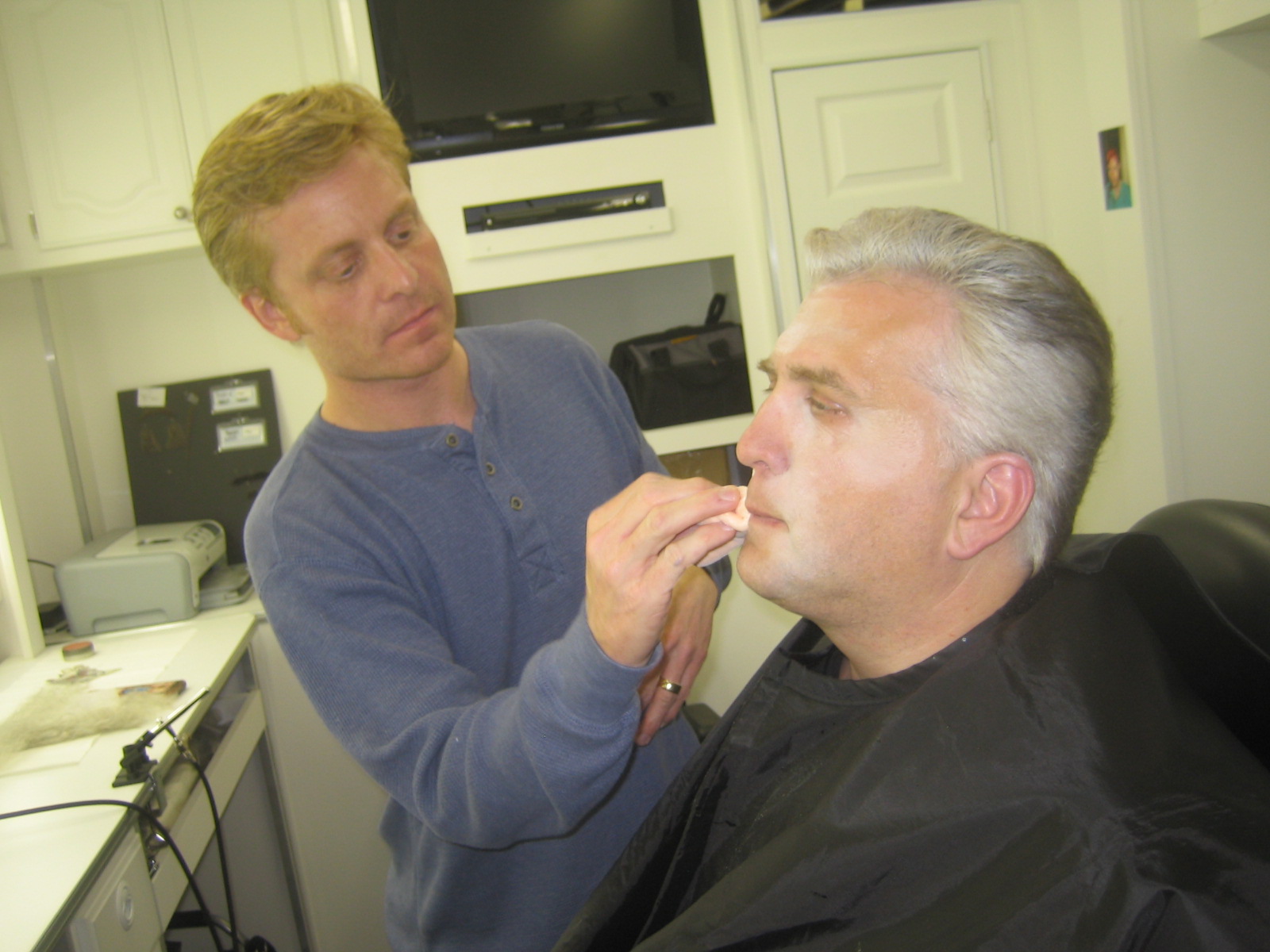
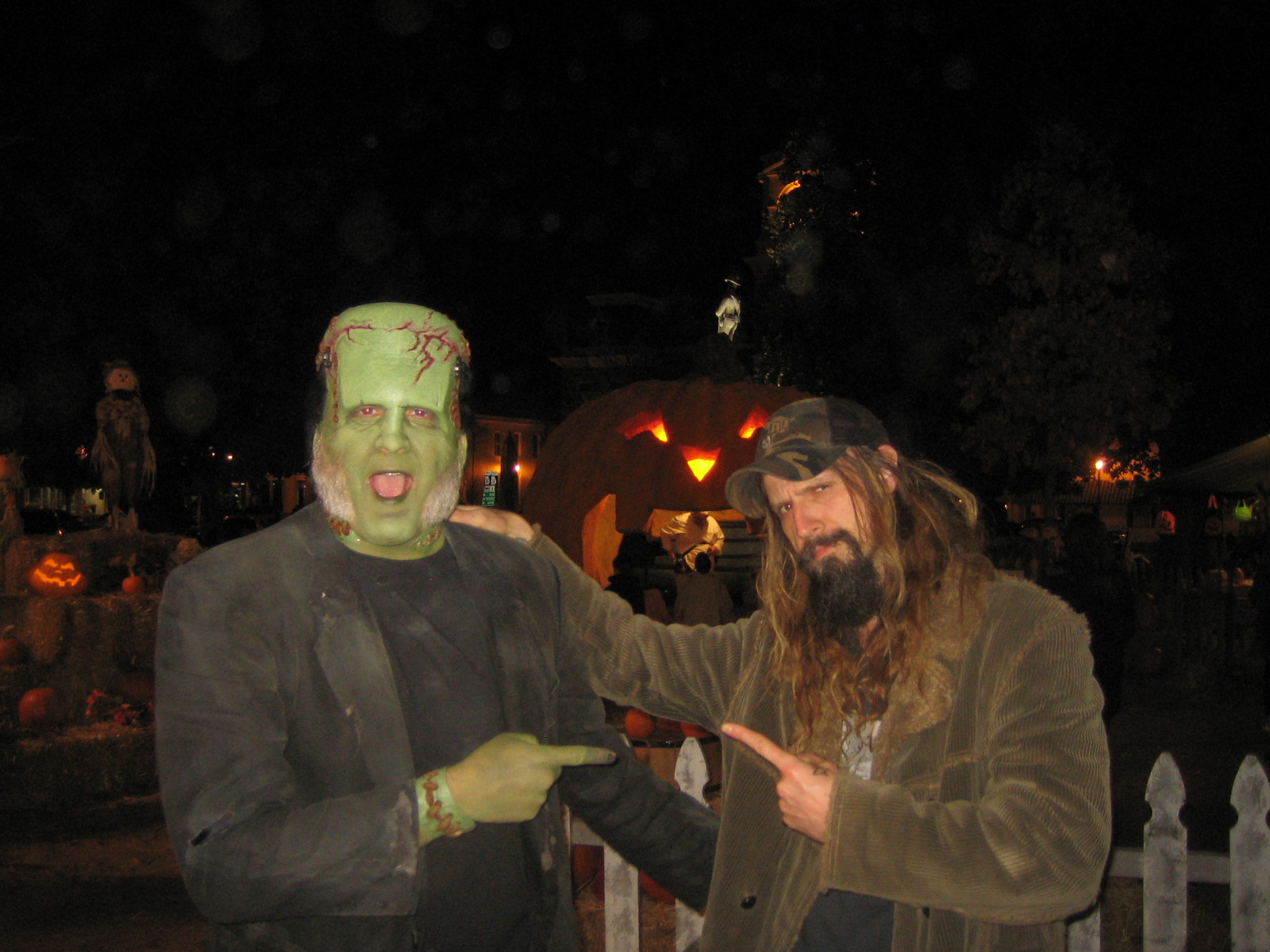
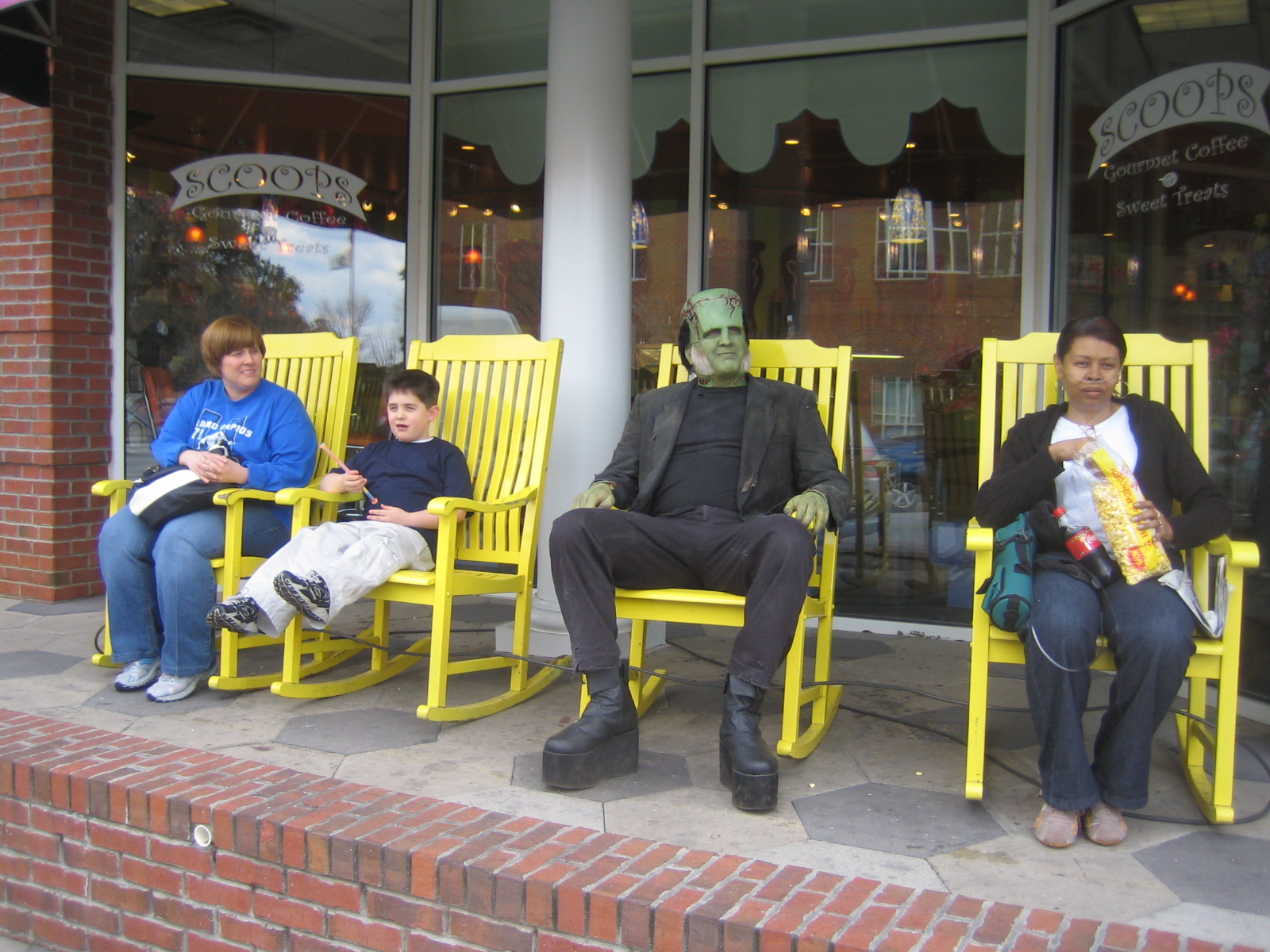
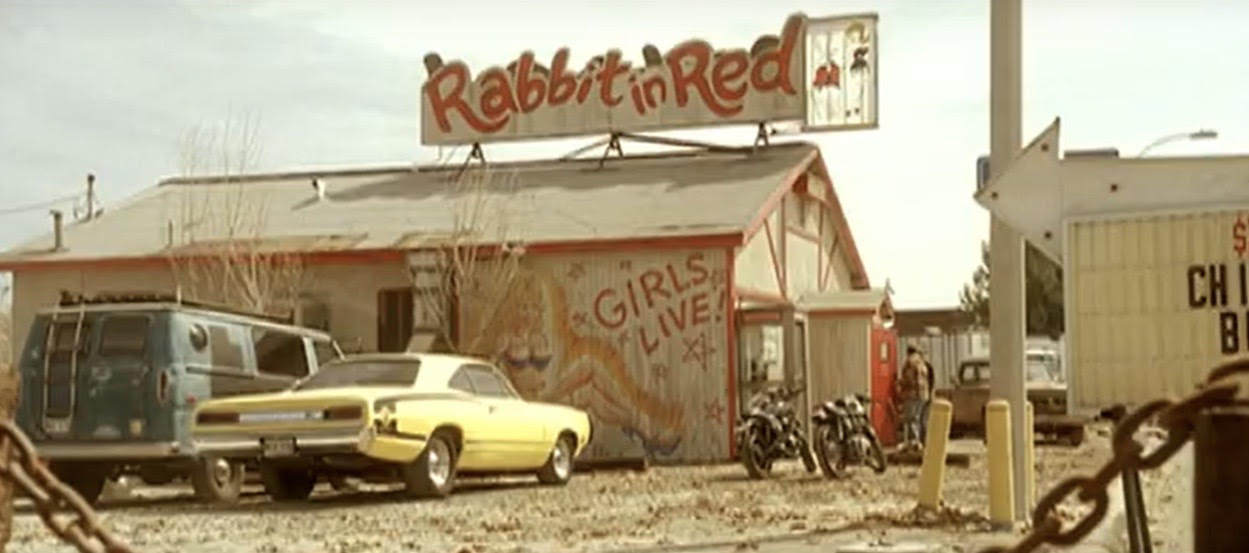
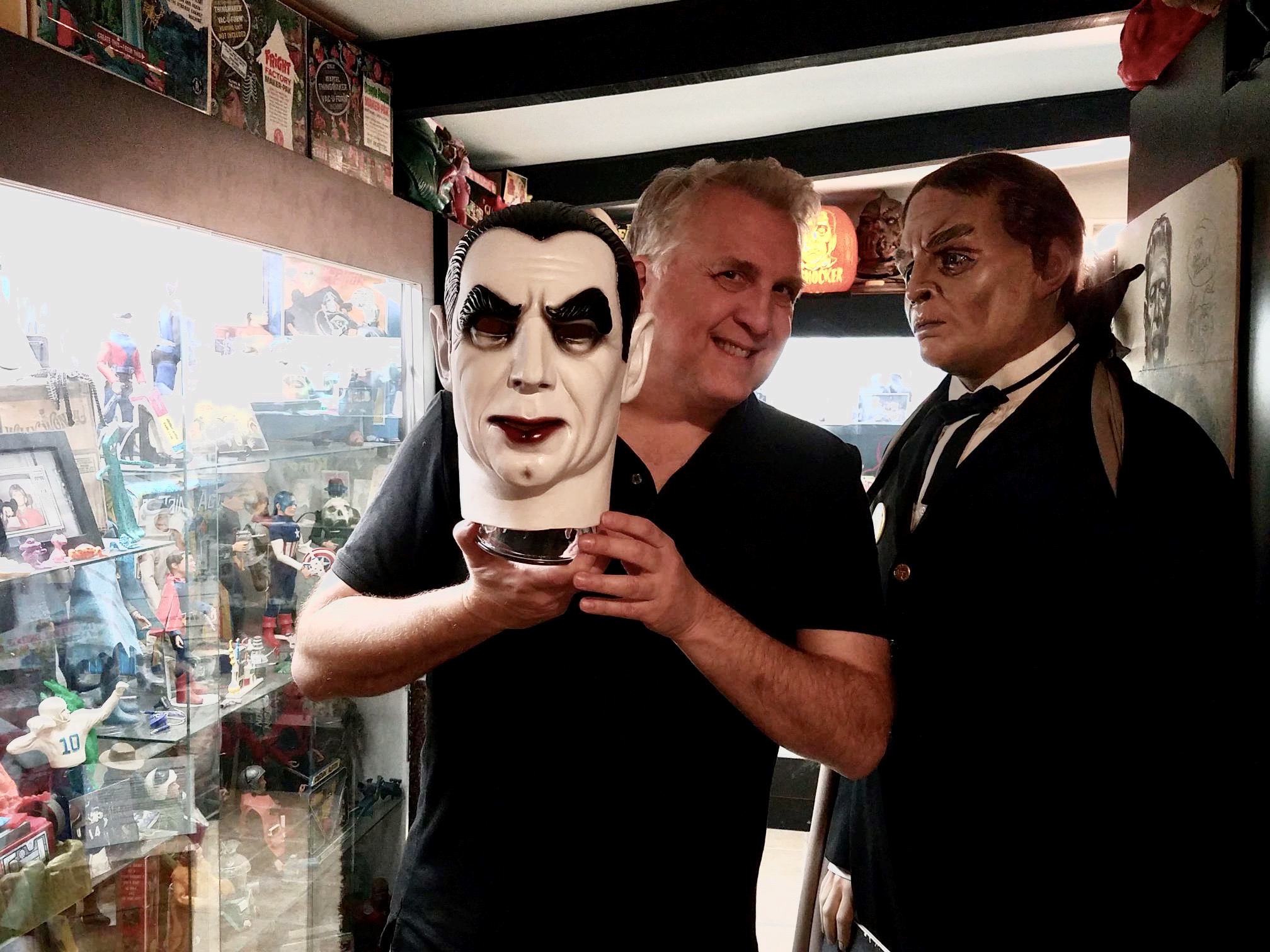
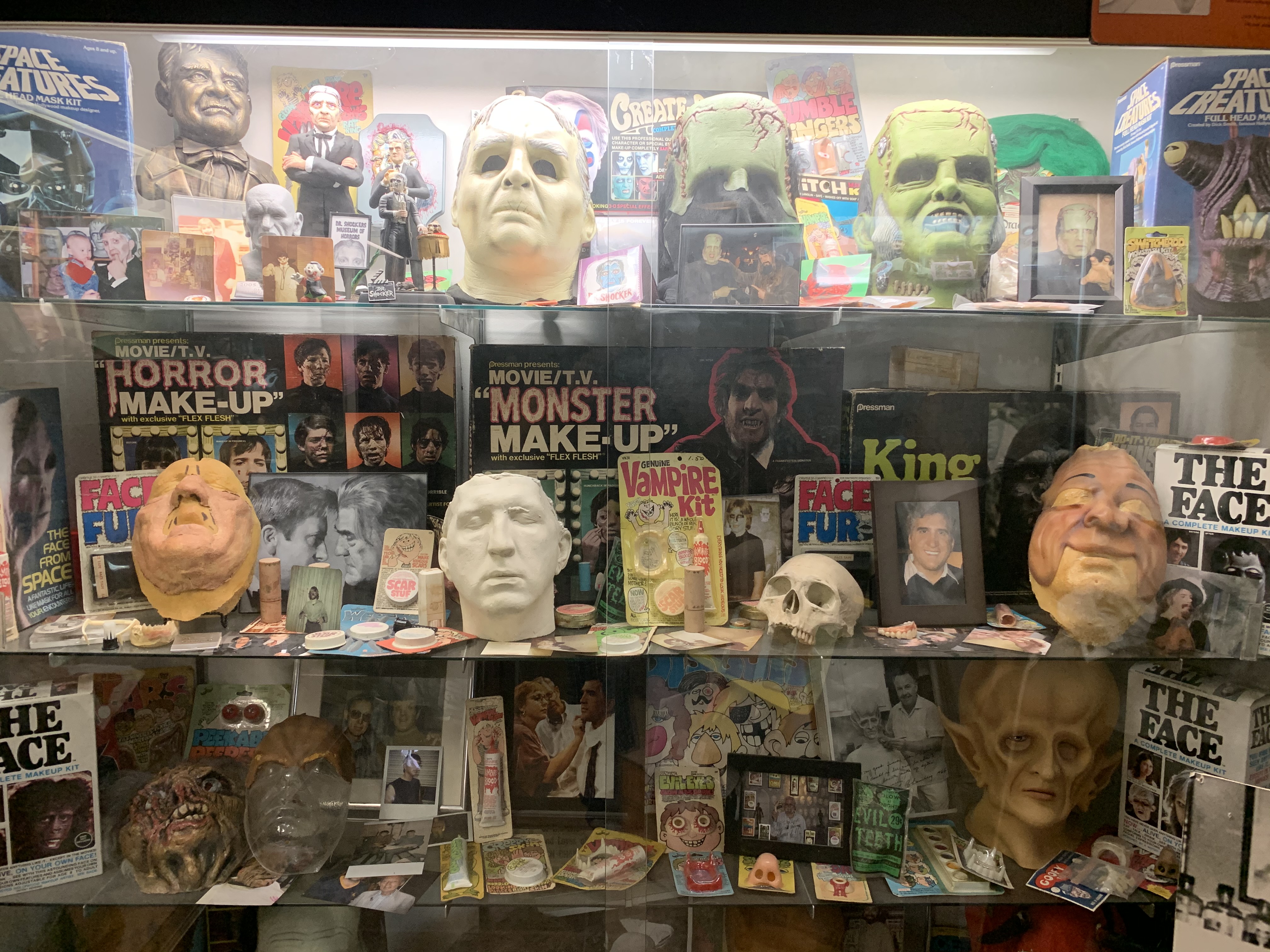
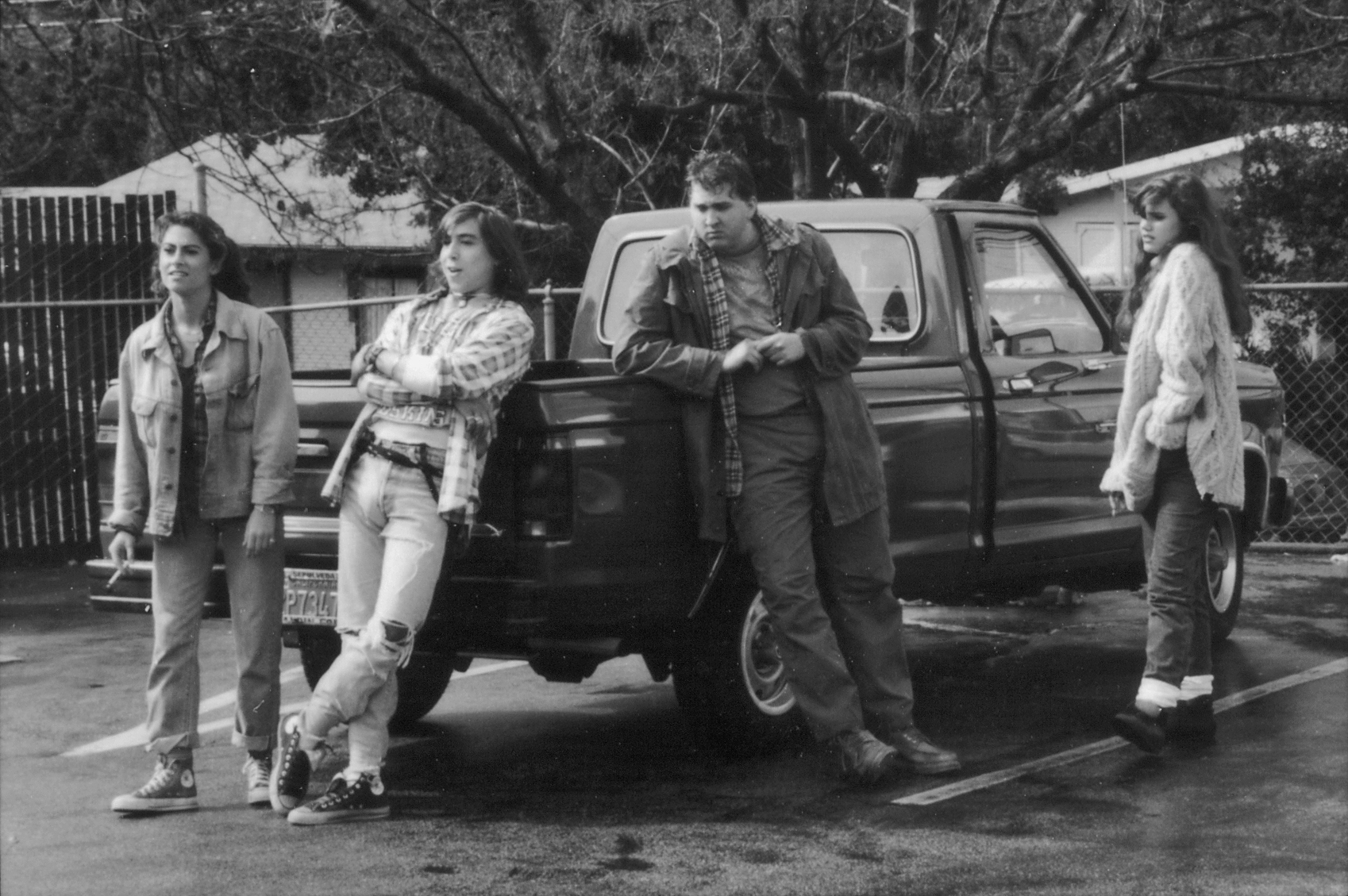
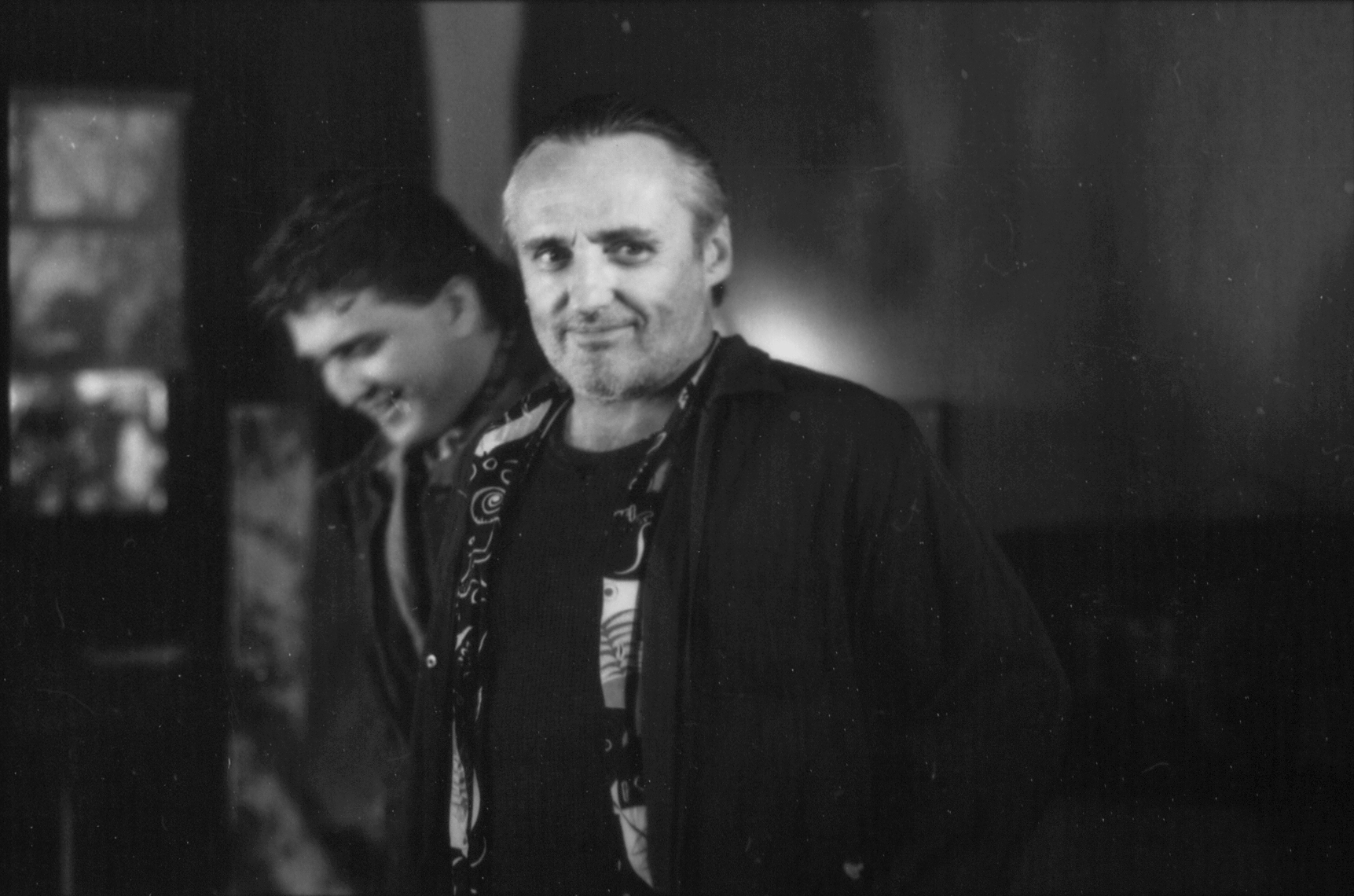
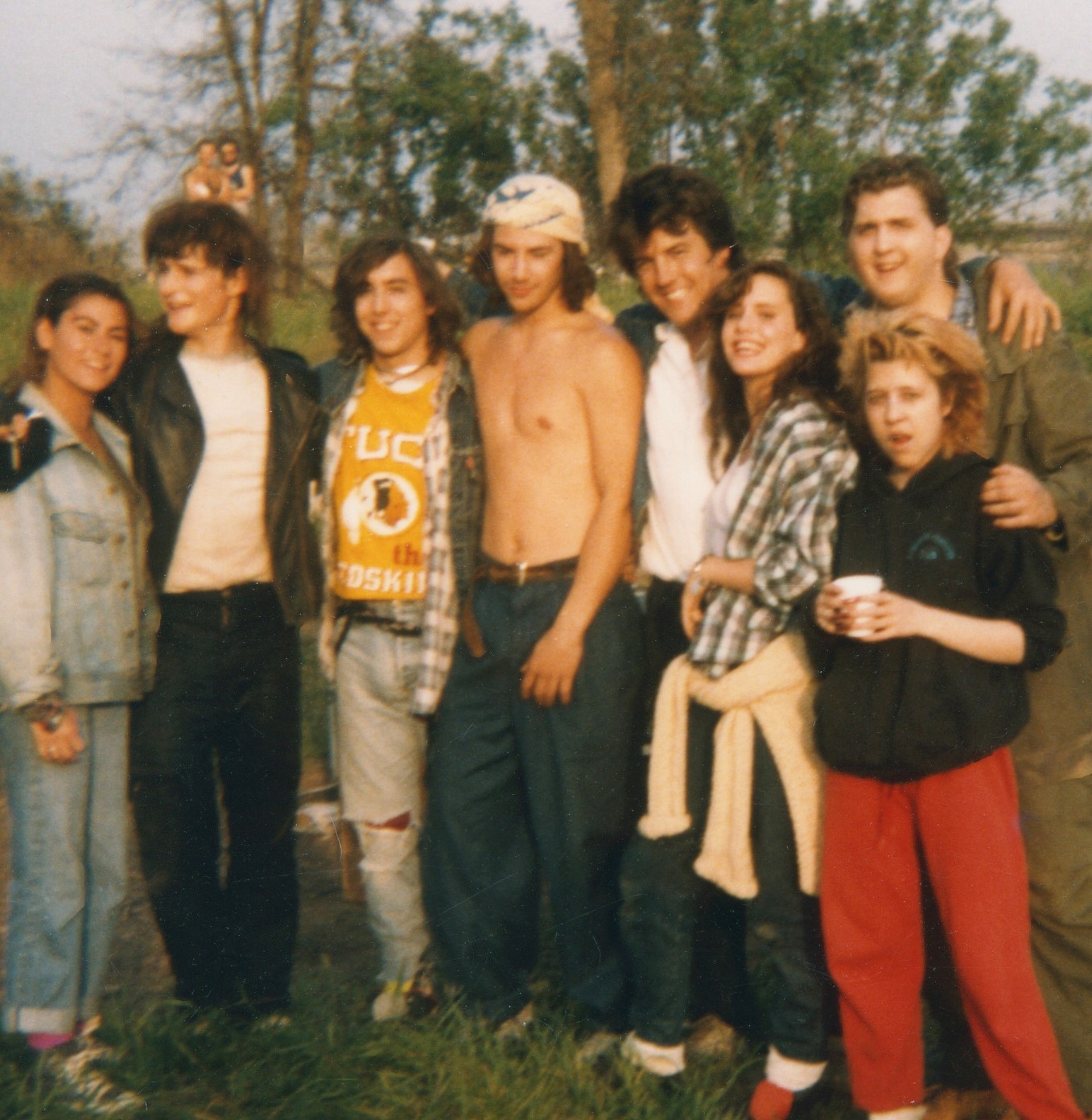
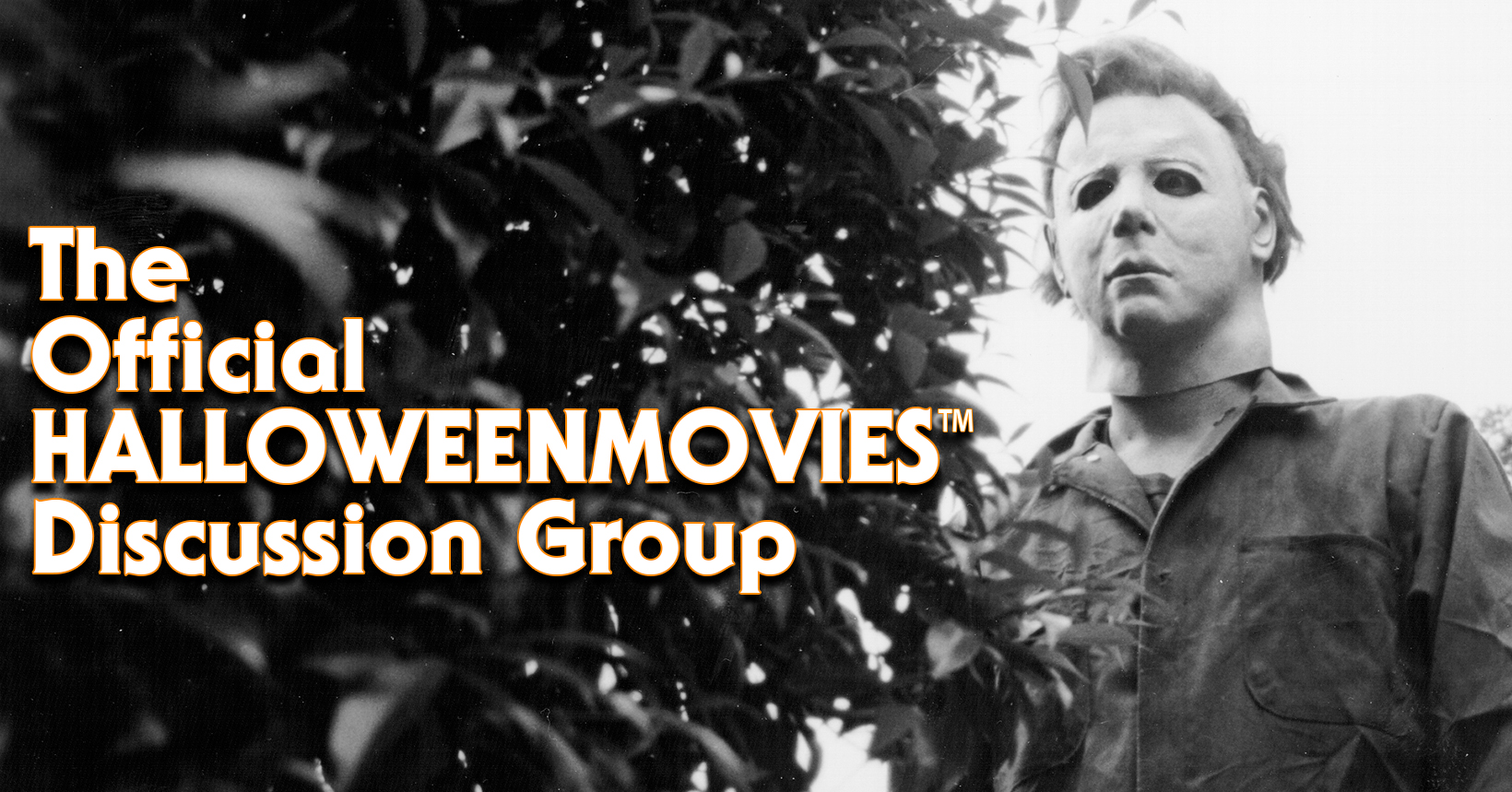
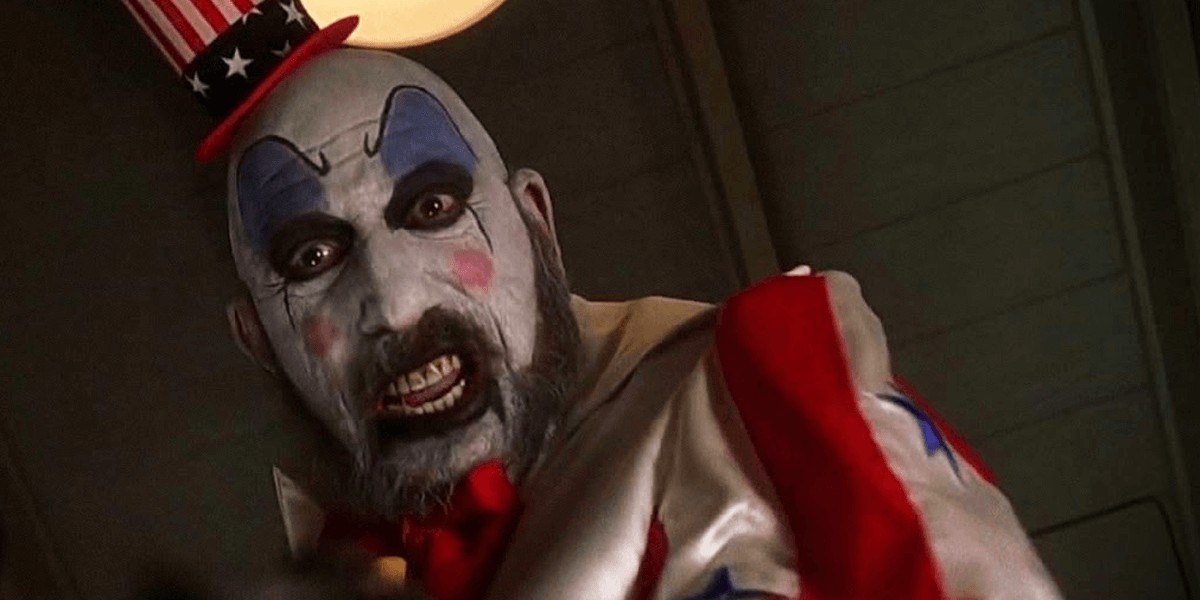 (Sid Haig as ‘Captain Spaulding’ in 2003’s House of 1000 Corpses)
(Sid Haig as ‘Captain Spaulding’ in 2003’s House of 1000 Corpses)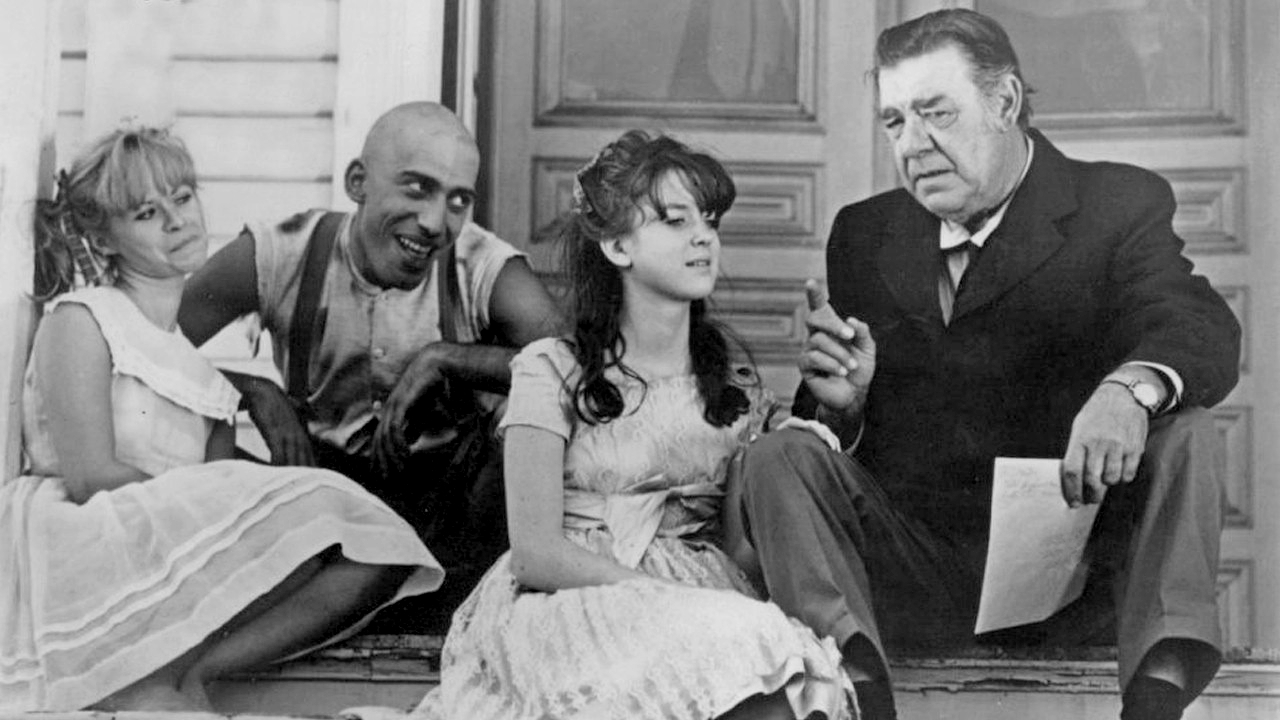 (Sid Haig as ‘Ralph’ alongside Lon Chaney Jr. in 1967’s Spider Baby)
(Sid Haig as ‘Ralph’ alongside Lon Chaney Jr. in 1967’s Spider Baby)